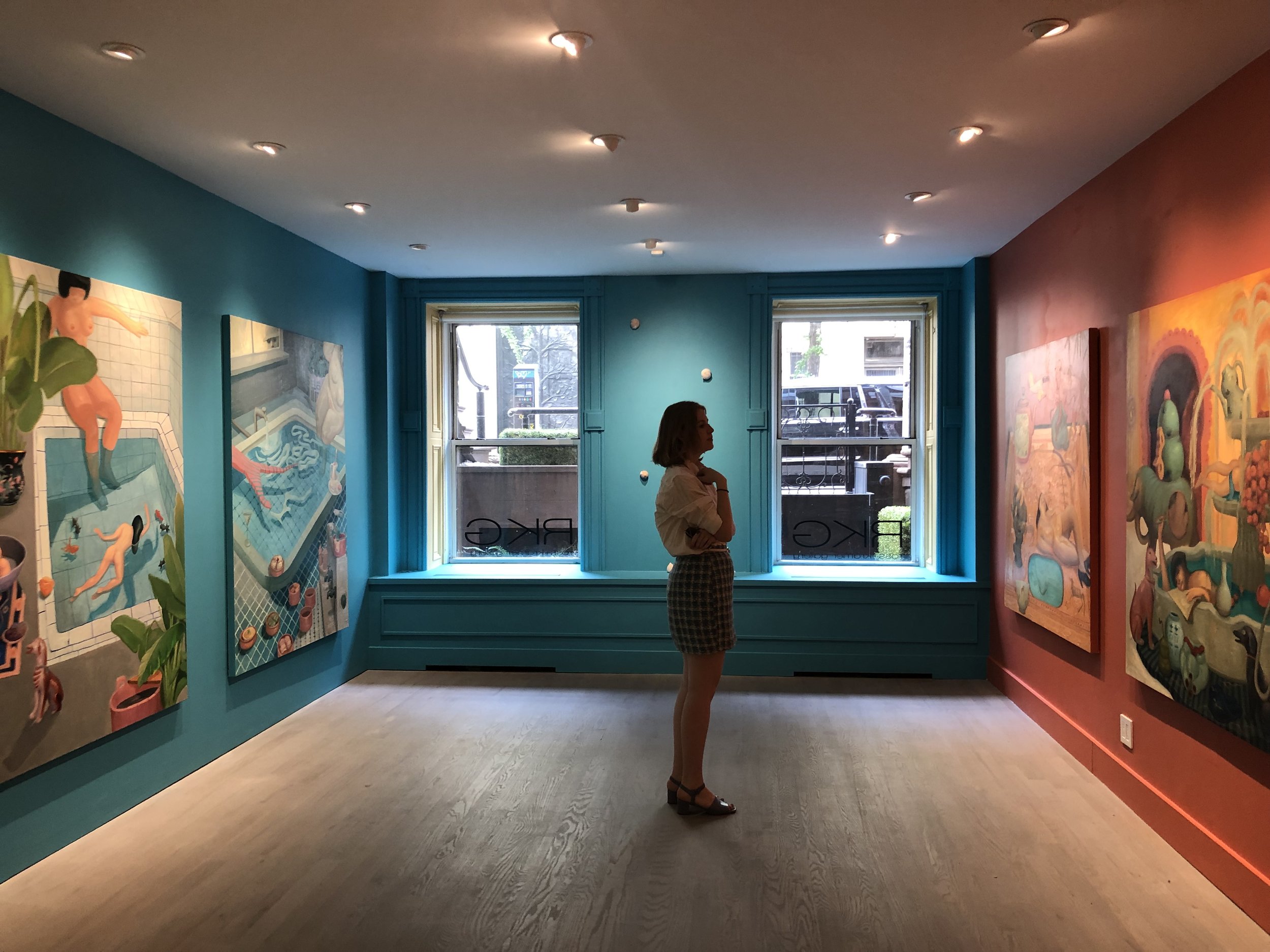Western Dreamscape
Dominique Fung at Ross + Kramer Gallery
Installation shot of “Wash Your Corners”
The oft-painted scene of Venus at her toilette has always been an image of passivity, but under the hand of Dominique Fung, who alchemizes bodies into porcelain, passivity becomes inertness. Though people and action abound in Fung’s “Wash Your Corners” at Ross +Kramer, a sense of manufacture pervades, and not only in her lush and faultless surfaces of Clorox blue and persimmon. She is the anti-Liliana Porter, using tchotchkes to signify remove rather than in order to draw out their humanness. Many of these objects are stand-ins for Asian stereotypes, which appear here as gilded dog figurines and China vases, pitchers, and plates.
Even the figures who populate these scenes as human lack any specificity to give them character. A woman who dangles her feet-less legs in a pool has no face, and another Venus figure stands before a mirror like a more famous Picasso counterpart, though her reflection lacks detail (she is holding a paintbrush as if intent on defining it herself––could this be the artist’s self-portrait?).
Surrealist tropes are present throughout this show: visual conflation between the female body and objects, disembodied legs and torsos, and a lone eye embedded in architecture all recall the results of André Breton’s call to assert the “omnipotence of dream,” and the influence of one of Surrealism’s masters, Giorgio de Chirico, is never far off. Objects cast characteristic shadows dramatically, but it is their displacement from time (also a signature of Chirico) that casts them as dreams. But to whose unconsciousness do they belong?
If our immediate recognition of these tropes is an indication (and if we learn anything from the gallery goer who informed the artist at her opening that she looked like a doll), this is a collective dreamscape based in stereotype. Racism, as the manifestation of unconscious biases, is in some ways its own ugly Surrealism. A movement founded on the revelation of thoughts unbounded and “automatic,” Surrealism’s intention was to free the mind from ego. But what do we make of it when what we discover beneath can be an impulse towards hatred and diminishment of the Other? Fung exposes the darkness of which the human mind is capable by cleverly riding on Surrealism’s coattails, and in doing so she exposes racism to be far more deeply seated than a set of superficial stereotypes and, therefore, much more difficult to eradicate.
The vagueness of these canvases, the not-quite-there quality of Fung’s scenery, and the Dalí-like drooping of porcelain pots insist that Orientalism is a fantasy. And within Fung’s Surrealism, some dreams are nightmares.
Dominique Fung: Wash Your Corners
Ross + Kramer Gallery
Until August 17




